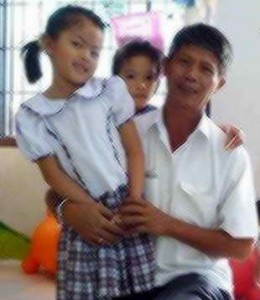 Distance learning has been identified by the World Bank and UNDP as a potentially valuable tool in meeting the Millennium Development Goals in Southeast Asia, since according to the Bank distance learning can provide “new and innovative means to bring educational opportunities,” “especially for those who have historically been excluded, such as populations in rural areas, women facing social barriers, and students with disabilities.” While there are some established and successful examples of the use of distance learning in higher education in Southeast Asia, there has been relatively less research on promoting distance education at the Continue reading
Distance learning has been identified by the World Bank and UNDP as a potentially valuable tool in meeting the Millennium Development Goals in Southeast Asia, since according to the Bank distance learning can provide “new and innovative means to bring educational opportunities,” “especially for those who have historically been excluded, such as populations in rural areas, women facing social barriers, and students with disabilities.” While there are some established and successful examples of the use of distance learning in higher education in Southeast Asia, there has been relatively less research on promoting distance education at the Continue reading
Category Archives: Mental
Foods Becoming Drugs with Knowledge
 Recent health news about dietary practices and food equate ‘healthy’ with ‘natural’ and ‘technologymediated’ with ‘risk’: such narrative connections are made particularly often in the ongoing controversy over Genetically Modified Organism (GMO) and foods considered as “organic.” Continue reading
Recent health news about dietary practices and food equate ‘healthy’ with ‘natural’ and ‘technologymediated’ with ‘risk’: such narrative connections are made particularly often in the ongoing controversy over Genetically Modified Organism (GMO) and foods considered as “organic.” Continue reading
Developing students’ communicative competence in university
 The development of communication abilities and foundation of speaking skills are considered in this article. As a source of information used by educational and scientific text on a specialty, which is determined on the basis of the formation of language skills and the development of communication skills.
The development of communication abilities and foundation of speaking skills are considered in this article. As a source of information used by educational and scientific text on a specialty, which is determined on the basis of the formation of language skills and the development of communication skills.
The main goal of the subject «Russian language» is to form a communicative competence of the future specialists, that is to form skills to solve real communicative tasks Continue reading
Psychologist working with inadequate parent families
 Abstract. The article considers social and psychological contexts inadequate parental position as conditions deviant teenagers, and also defines the role of the school psychologist to work with such families. Scientists-deviantology (Dulov, Gilinsky, Klayberg, Komlev, Khagurov) always stresses that recruiting a new generation of children with deviant behavior mainly at the expense of families where violated the socialization process (primarily legal and existential). Continue reading
Abstract. The article considers social and psychological contexts inadequate parental position as conditions deviant teenagers, and also defines the role of the school psychologist to work with such families. Scientists-deviantology (Dulov, Gilinsky, Klayberg, Komlev, Khagurov) always stresses that recruiting a new generation of children with deviant behavior mainly at the expense of families where violated the socialization process (primarily legal and existential). Continue reading
Child’s outlook in Waldorf education
 Basically we use elements of this school for the recovery and rehabilitation of the existing traditional teaching approaches and techniques. We are interested, first of all, in the basic principles of Waldorf education, aimed at developing a holistic worldview of the child. It should be noted that the natural, organic development of a child is one of the first tasks of Waldorf education. Continue reading
Basically we use elements of this school for the recovery and rehabilitation of the existing traditional teaching approaches and techniques. We are interested, first of all, in the basic principles of Waldorf education, aimed at developing a holistic worldview of the child. It should be noted that the natural, organic development of a child is one of the first tasks of Waldorf education. Continue reading
The phenomenon of nostalgia in post-soviet culture
 The situation of “transition” happened after the fall of the Soviet Union had left us with the question of identity and values of the Russian society. While being unfinished, the transition keeps a vast amount of symbols and meanings affiliated with the Soviets, but still acting as the part of a new forming culture. Continue reading
The situation of “transition” happened after the fall of the Soviet Union had left us with the question of identity and values of the Russian society. While being unfinished, the transition keeps a vast amount of symbols and meanings affiliated with the Soviets, but still acting as the part of a new forming culture. Continue reading
Suicide in the context of T. Szasz’s anti-psychiatry project
 The problem of suicide is not a central subject for T. Szasz. There are only two books devoted directly to the suicide problem in his numerous books: “Fatal Freedom: The Ethics and Politics of Suicide” (1999) and “Suicide Prohibition: The Shame of Medicine” (2011). But the importance of considering the problem of suicide in the framework of the anti-psychiatry project can be expressed in two approaches. First, a study of suicides and treatment practices to apply to people suspected of possible suicide or to who have failed to attempt suicide is based on the main thesis of T. Szasz about the myth of Continue reading
The problem of suicide is not a central subject for T. Szasz. There are only two books devoted directly to the suicide problem in his numerous books: “Fatal Freedom: The Ethics and Politics of Suicide” (1999) and “Suicide Prohibition: The Shame of Medicine” (2011). But the importance of considering the problem of suicide in the framework of the anti-psychiatry project can be expressed in two approaches. First, a study of suicides and treatment practices to apply to people suspected of possible suicide or to who have failed to attempt suicide is based on the main thesis of T. Szasz about the myth of Continue reading
Moral aspect of belief concept
 The belief is a universal phenomenon in life of human society. Being, first of all, fundamentals of any religion, she plays very noticeable role both in science, and in ordinary human life. The scientist, making any hypothesis, believes in its validity; putting a teapot with water on fire, we believe that in a few minutes he will begin to boil. In life of each person there are moments when he purely for practical reasons is forced to rely on trust. Continue reading
The belief is a universal phenomenon in life of human society. Being, first of all, fundamentals of any religion, she plays very noticeable role both in science, and in ordinary human life. The scientist, making any hypothesis, believes in its validity; putting a teapot with water on fire, we believe that in a few minutes he will begin to boil. In life of each person there are moments when he purely for practical reasons is forced to rely on trust. Continue reading
Methods to prevent and resolve conflicts at work and studying
 Every human being is a part of a certain social medium, a constituent part of a society. All people have their own views, beliefs, priorities, principles and desires. People are different as well as their characters are very dissimilar.
Every human being is a part of a certain social medium, a constituent part of a society. All people have their own views, beliefs, priorities, principles and desires. People are different as well as their characters are very dissimilar.
The character of a person consists of qualities that make him or her distinct from other Continue reading
Sense of Life in philosophy of Frank G. and M. Trubetskoho
 Now third everybody in our society begins to think of by the course of life. What aims to attain in this world, by whom to become, how to realize itself in society.
Now third everybody in our society begins to think of by the course of life. What aims to attain in this world, by whom to become, how to realize itself in society.
Therefore sooner or later we begin to think of by “sense of life in general” and by “sense of own life”. In a concept sense of life displayed the content of education fullness of life , understanding of setting in the world, values worth living. Continue reading
